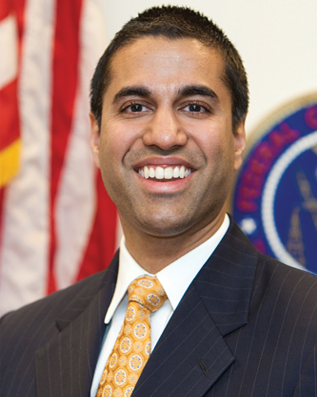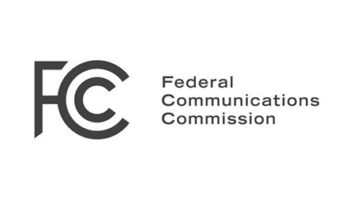
FCC Chairman Ajit Pai addressed the InterAmerican Development Bank and the International Institute of Communications Online Workshop on April 17.
The following are his remarks, which he titled, “Regulation in Times of Pandemics: Lessons for the Future.”
First, thank you to the IDB (Interamerican Development Bank) and the IIC (International Institute of Communications) for organizing today’s meeting and for inviting me to participate.
Thank you to Ambassador David Gross and COMTELCA Executive Secretary Allan Ruiz for running this virtual panel.
It’s a pleasure to be with you and an honor to be joined by my distinguished counterparts: Alejandra de Iturriaga, Head of Spain’s CNMC; Adolfo Cuevas Tapia, President of the IFT in Mexico; and Leonardo Euler de Morais, President of ANATEL in Brazil. I hope all of you and your families are staying safe.
We’ve all been asked to talk about our experiences in responding to the COVID-19 pandemic, and any lessons learned that could guide us in the future.
Before going any further, I think it’s important to acknowledge up front that we should approach this exercise with a proper dose of humility.
At the FCC, it has been exactly five weeks since we effectively shut down our headquarters, shifted our operations online, and made pandemic response our primary focus.
In many ways, we’re still building the plane while flying it. Recognizing that it’s hard to say anything definitive only a few weeks into a fluid situation, I’d like to walk you through the FCC’s guiding principles as we’ve approached this challenge.
Number one, set clear priorities.
There’s an old saying: if everything is a top priority, then nothing is a top priority. With limited time and capacity, we needed to make quick assessments about the most important national objectives where the FCC could make a difference.
Looking at the landscape in early March, a few things became clear. First, social distancing was going to force huge segments of our economy and daily lives to move online, making it more important than ever that Americans have Internet access. And, second, social distancing would create massive temporary job losses and furloughs, putting millions of Americans at risk of missing bill payments and having their Internet and telephone service cut off.
So, we decided that our top priority was to make sure that as many Americans as possible have Internet access and that that no American would have their Internet and voice service cut off because of the disruptions caused by the COVID-19 pandemic.
That brings me to guiding principle number two: use markets before mandates.
In times of crisis, I understand how some might be tempted to look for any lever they can find to compel private companies to carry out the government’s goals. But with the coronavirus pandemic, the FCC chose a different path.
Specifically, we called on broadband and telephone service providers to take what we call our Keep Americans Connected pledge. The pledge has three core commitments: no consumer would lose service over the next 60 days due to an inability to pay a bill because of the disruptions associated with the pandemic; no one would be charged late fees because of the pandemic; and Wi-Fi hotspots would be opened up to anyone who needs them. The response was overwhelmingly positive. More than 700 broadband and phone providers have signed the pledge, including all of the nation’s largest service providers and many of the smallest.
We also urged providers to go above and beyond the pledge, to do whatever they could to help Americans stay connected and expand connectivity. And many have. They’ve upgraded speeds at no charge, expanded low-cost programs, offered free service to low-income families and students, and donated connectivity to healthcare workers and facilities.
Some might wonder: why are these private companies acting in the public interest?
I think the biggest factor is that these decisions are made by people. And in trying times, most people want to do the right thing, not just for their company, but for their fellow citizens and for their country.
But I also think that the market creates powerful incentives for companies to do the right thing. If your company doesn’t step up for you, or even worse, engages in bad behavior, consumers will be much more likely to turn to the competition in the weeks, months, and years ahead.
I would note that we also urged broadcasters to use their platform to promote social distancing, and they have enthusiastically and voluntarily done so. They have also expanded news coverage of the COVID-19 pandemic, providing Americans with the information that they need to stay safe and healthy. And they’ve raised funds in their communities to help those in need.
In the end, I believe trusting the markets rather than solely relying on mandates resulted in more consumer-friendly policies than we would have achieved with a more heavy-handed government intervention, and I know that we were able to make these changes more quickly. I’d also argue that the general regulatory approach that we have in the United States have applied to the broadband marketplace gave us much stronger infrastructure in the first place, as it gave companies the incentives to invest in resilient, robust networks that could withstand unprecedented consumer demands.
The third principle I’d like to highlight is to use every tool in the toolkit.
None of the FCC’s programs was developed with a pandemic in mind, but all of them sure can help.
For example, telehealth has become increasingly valuable in the era of social distancing. It allows people to get medical attention while avoiding the increased risk and strains at hospitals. To promote telehealth solutions for the patients of rural hospitals and clinics, the FCC voted to make an additional $42 million immediately available through our Rural Health Care Program.
Building on this foundation, two weeks ago, the FCC established a $200 million COVID-19 Telehealth Program to help health care providers provide connected care services to patients at their homes or mobile locations in response to the pandemic. This new initiative was fully funded as part of Congress’s recent coronavirus relief legislation.
Similarly, the FCC has examined our programs to connect schools, low-income households, and individuals who are deaf or have a speech disability, and has relaxed rules to help extend service to more people during this pandemic.
Relatedly, these efforts highlight the importance of having pre-existing programs in place to close the digital divides that exist in our communities. These are the communities that are most vulnerable during emergencies, and it is much easier to scale up existing programs than start from scratch during an emergency.
That brings me to the fourth principle: During an emergency, act like it’s an emergency.
If there’s one area where bureaucracies struggle most, it’s doing anything fast. But during a pandemic, delays can be deadly. So the FCC has put a premium on making decisions as quickly as possible. We’re talking days, not months or years.
In particular, it seems like every other day, we have been granting temporary authority to wireless carriers to use additional spectrum to meet the increased demand for mobile broadband. We’ve already seen evidence that one of these waivers has helped a provider double the speeds for its 4G service in certain areas of the country.
We have also moved quickly to identify new scam robocalls and text messages offering free home testing kits, promoting bogus cures, selling health insurance, and preying on virus-related fears. We’re working to warn consumers about these schemes and how best to protect themselves.
The last principle I’ll highlight might be the most important: put your people first.
To get the policies right, you need to treat the people on your team right. The health and safety of FCC employees is paramount to me. That’s why, on March 12, I directed all FCC staff who could telework to begin working from home. For context, on March 19, California became the first state in the U.S. to issue a stay-at-home order. We know that many of our staff are home with children, so we’ve given staff 10 hours a week of leave if necessary to tend to family concerns. These decisions may seem small, but I believe they make a big difference. They’re the right things to do for our dedicated professionals who always give us everything they’ve got.
I’ll finish with something I said earlier: it may seem like a long time, but we’ve only been dealing with this issue for several weeks. There’s still much we can learn from each other. So let me just say that I look forward to hearing from everyone else and leaving this conversation armed with new ideas to better serve our fellow citizens.












